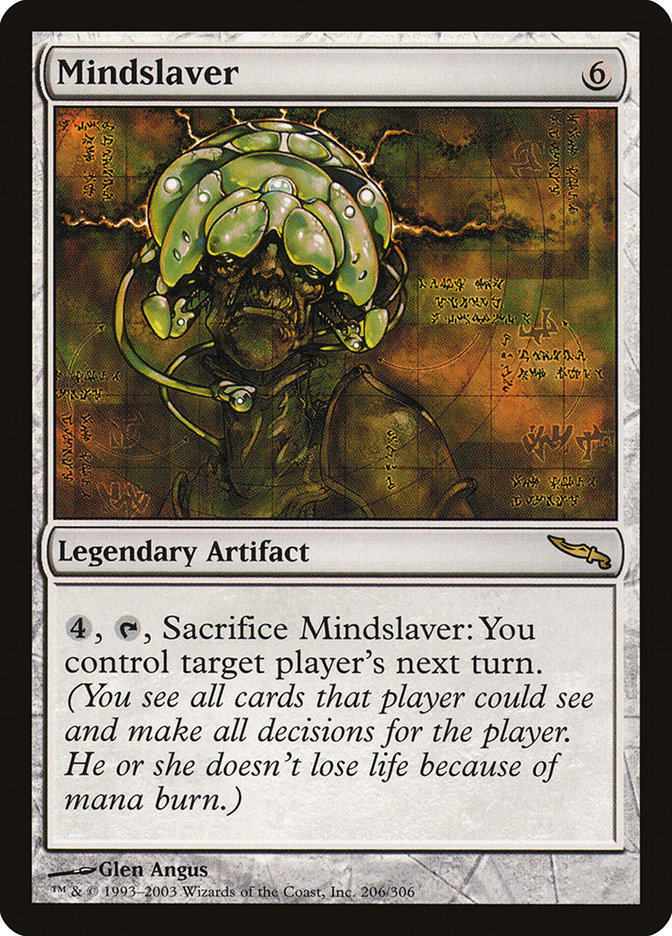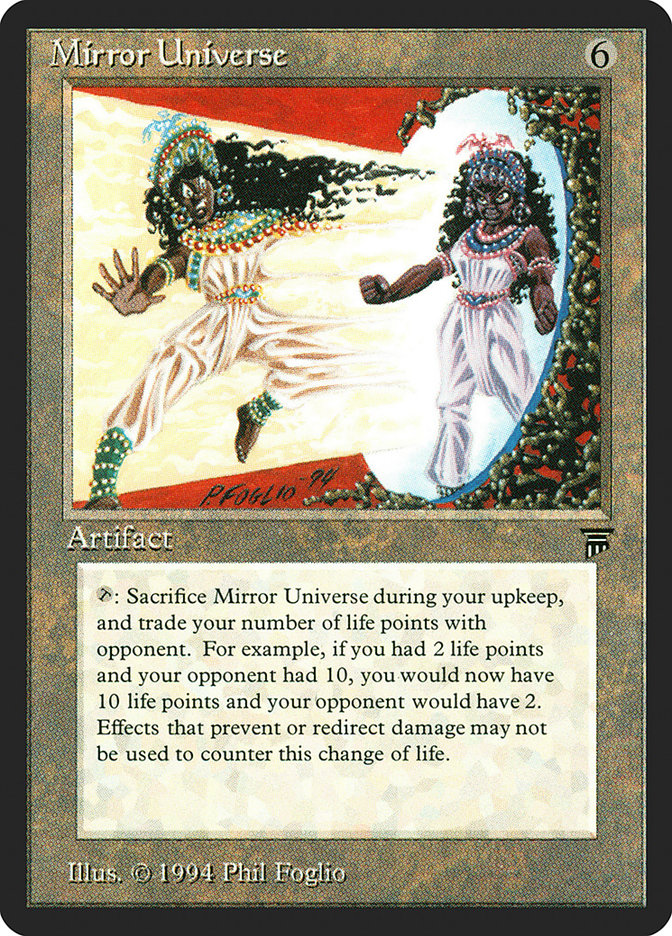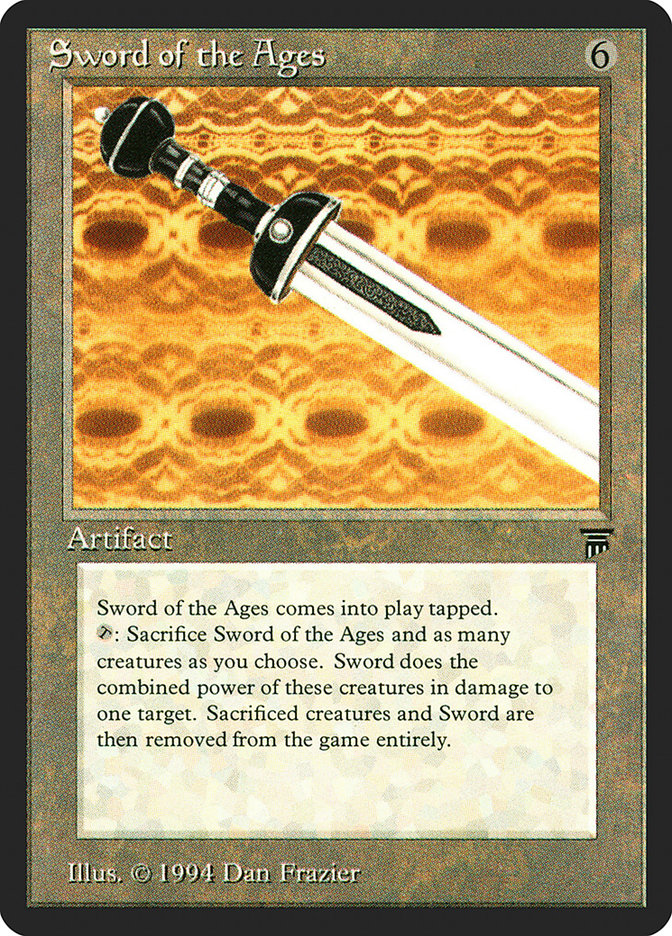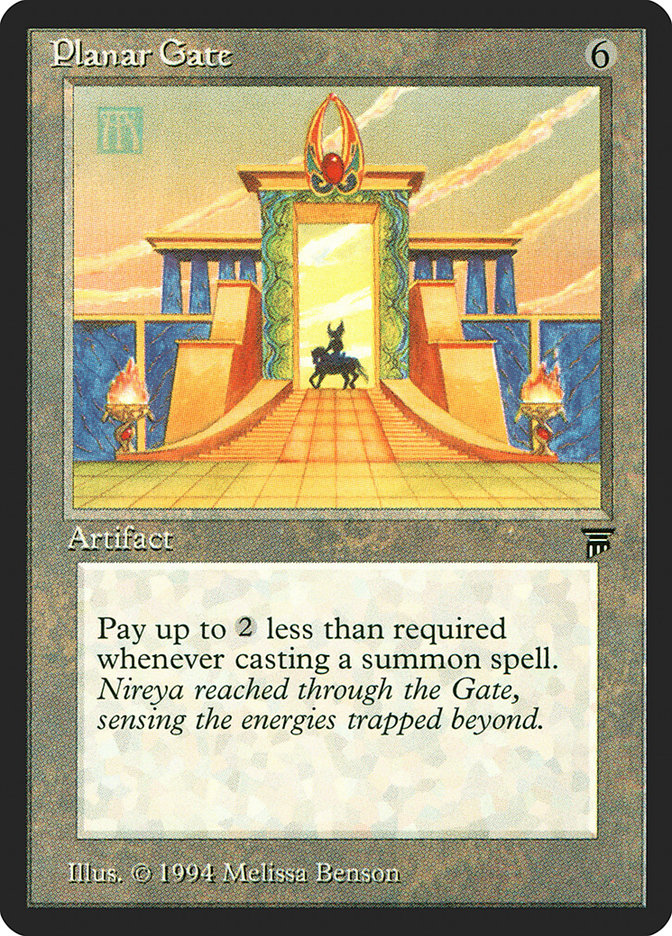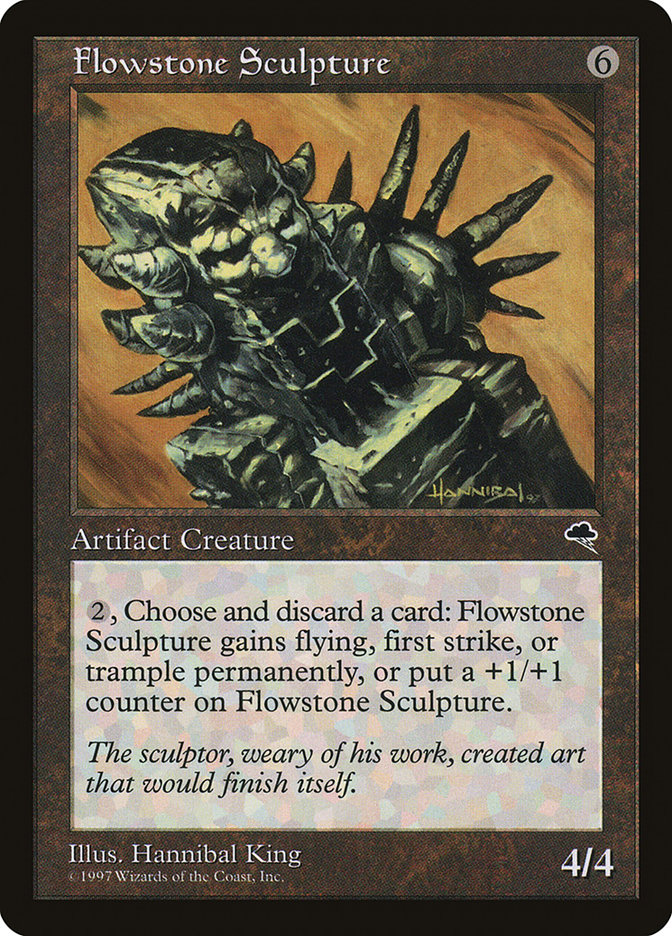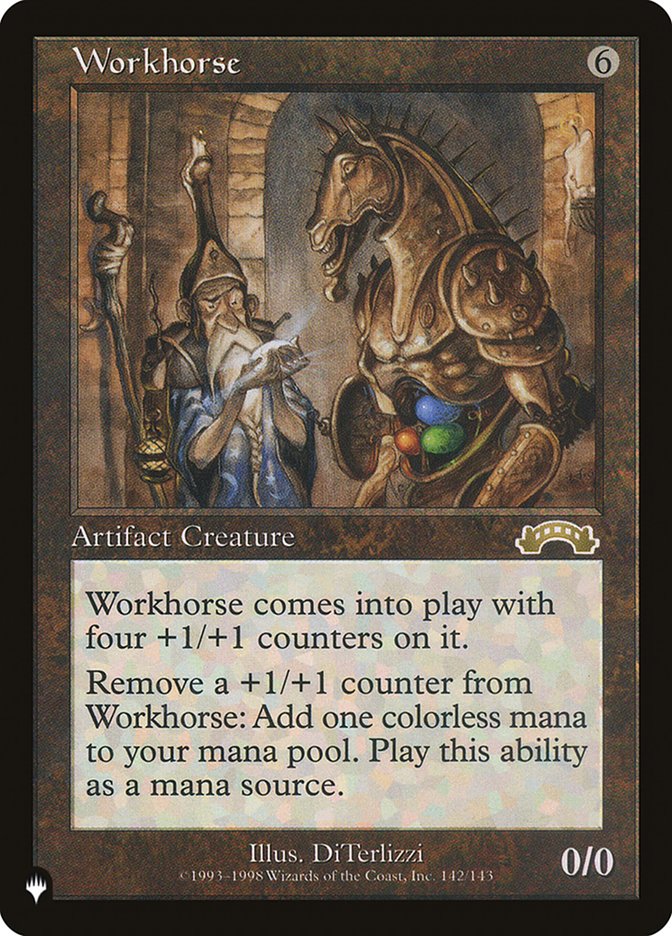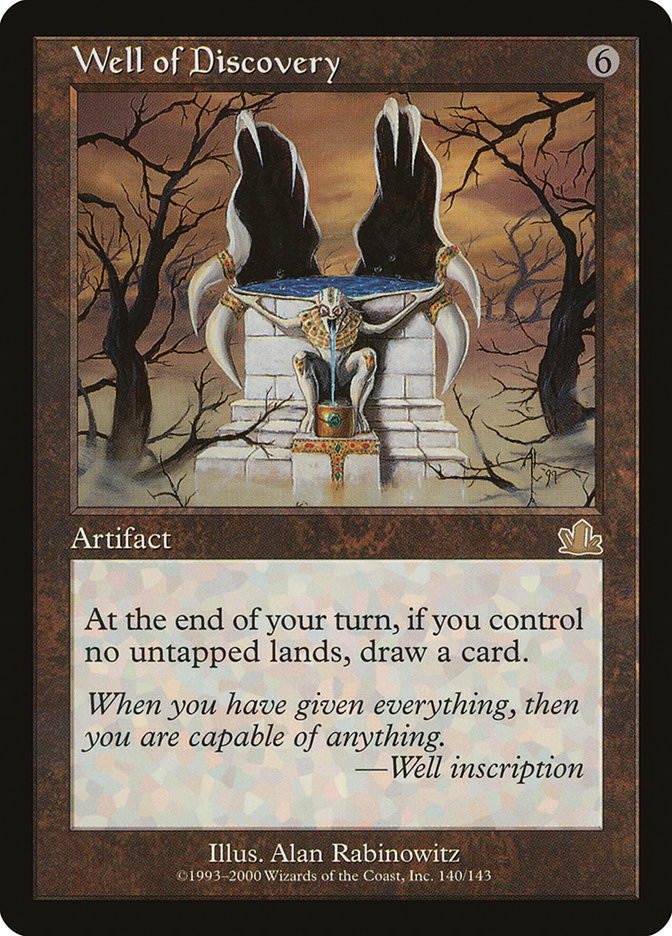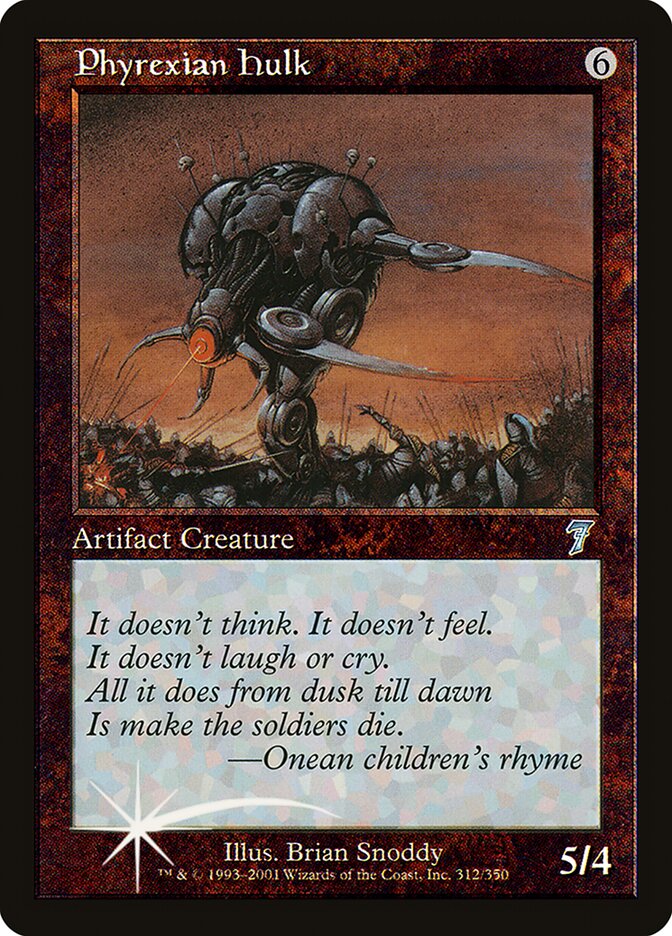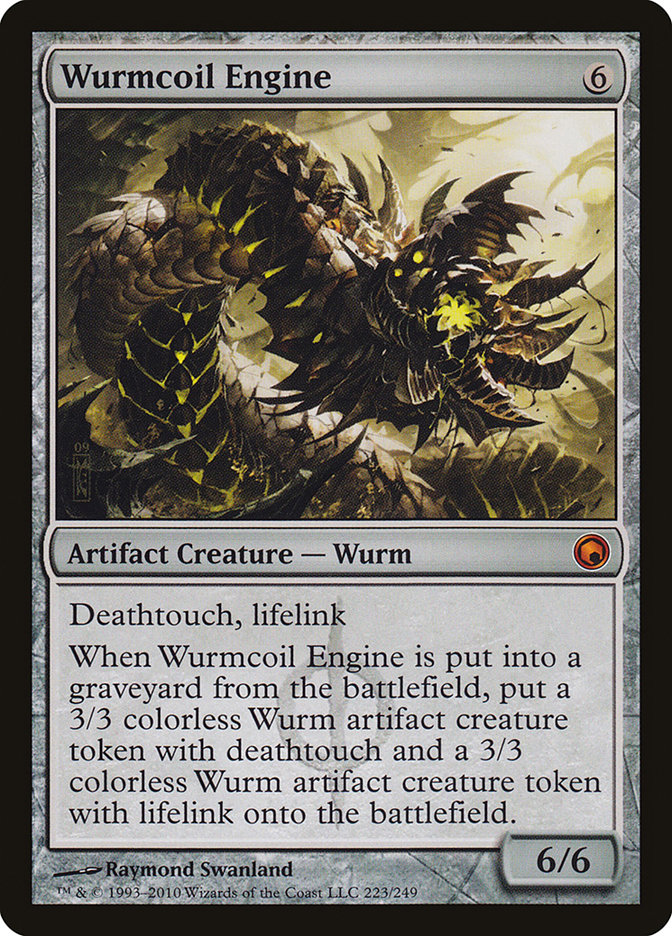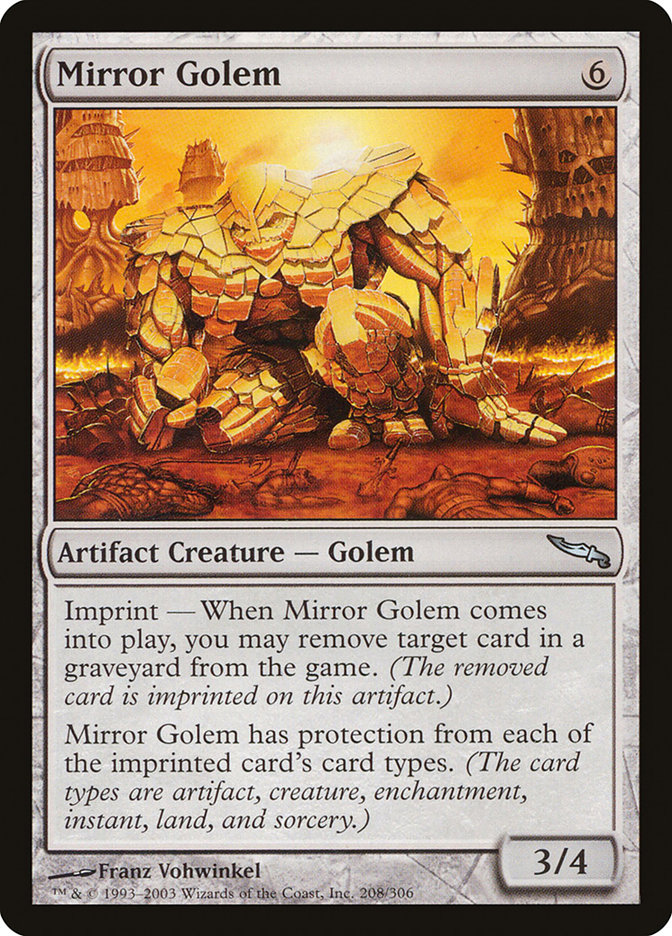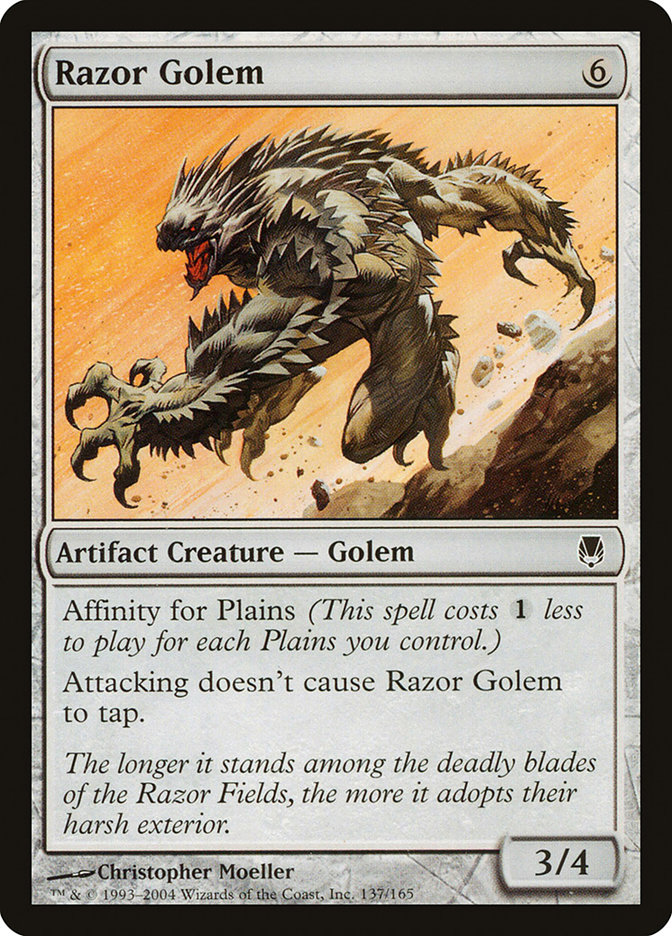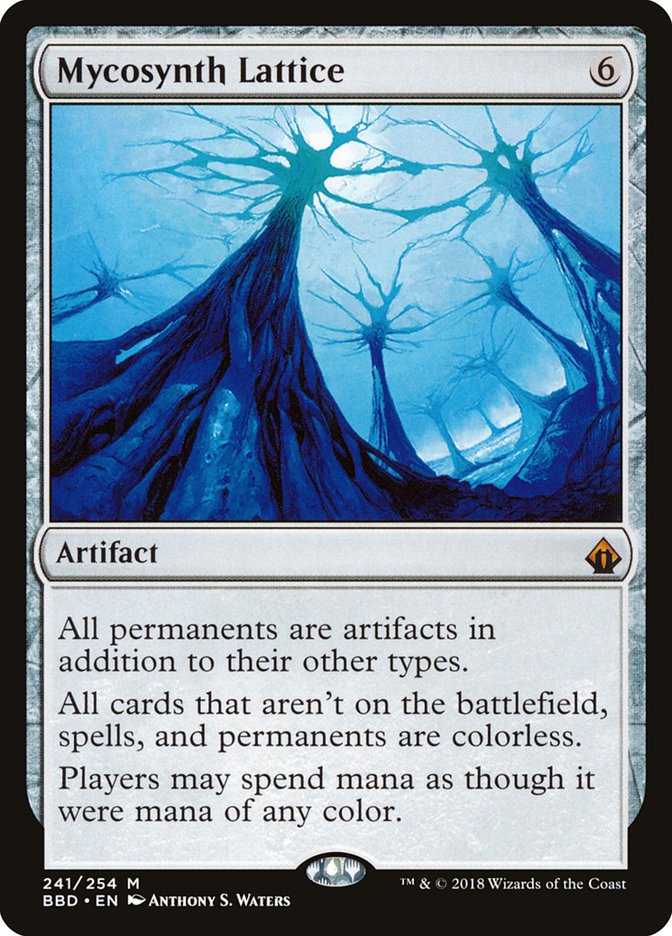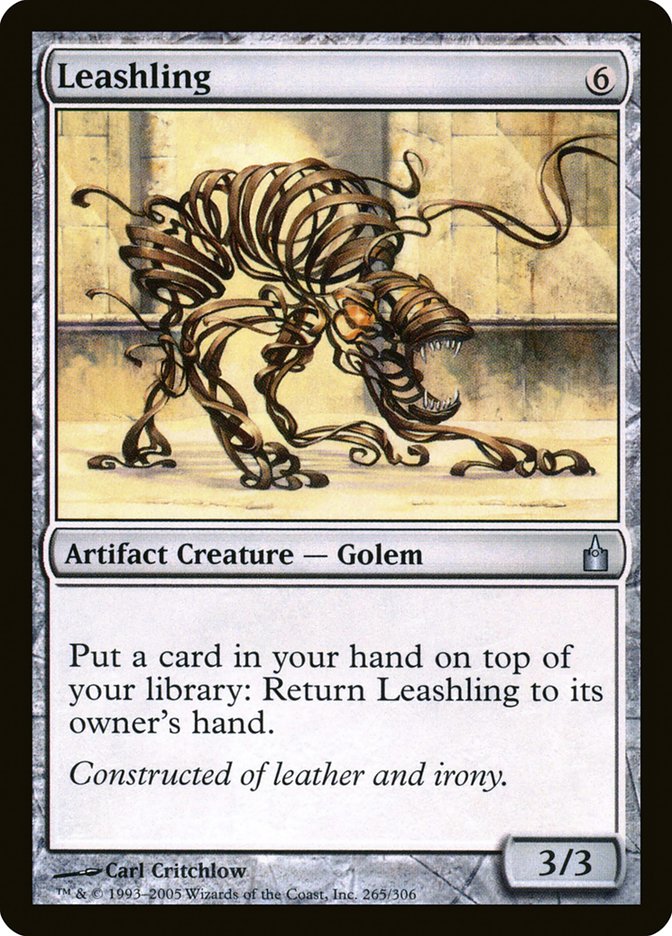Mindslaver MTG Card
| Card sets | Released in 6 setsSee all |
| Mana cost | |
| Converted mana cost | 6 |
| Rarity | Rare |
| Type | Legendary Artifact |
Text of card
, , Sacrifice Mindslaver: You control target player's next turn. (You see all cards that player could see and make all decisions for the player. He or she doesn't lose life because of mana burn.)
Understanding Mindslaver’s Unique Control
Mindslaver is an exceptional artifact in MTG that offers a twist on game control. Comparable to other control pieces like Sorcerous Spyglass or Pithing Needle, Mindslaver takes it a notch further. Unlike the Spyglass, which passively peeks at an opponent’s hand and shuts down abilities, Mindslaver proves to be more invasive. When activated, it grants a player full command of an opponent’s next turn. This encompasses all decisions, ranging from casting spells to combat. It’s a power move that can utterly disrupt an opponent’s strategy.
Cards like Mindslaver
In the scope of control and manipulation within MTG, Mindslaver stands out for its complete domination of a player’s turn. The Emrakul, the Promised End card echoes this theme, albeit with a condition of reducing its cost by leveraging graveyard contents. While it also grants control over an opponent’s turn, it singularly joins the battlefield as a formidable creature itself. Emrakul offers a two-in-one threat but requires specific deck building. Worst Fears, another potent spell, mirrors Mindslaver’s turn-taking but as a one-off sorcery rather than a reusable artifact.
These cards, while sharing the theme of commandeering gameplay, differ vastly in application and effect. Mindslaver, with its reusability given sufficient mana resources, can dictate the pace and outcome of multiple rounds, making it a uniquely formidable component in any player’s arsenal.
Cards similar to Mindslaver by color, type and mana cost
Decks using this card
MTG decks using Mindslaver. Dig deeper into the strategy of decks, sideboard cards, list ideas and export to play in ARENA or MOL.
| # | Name | Format | Archetype | Event |
|---|---|---|---|---|
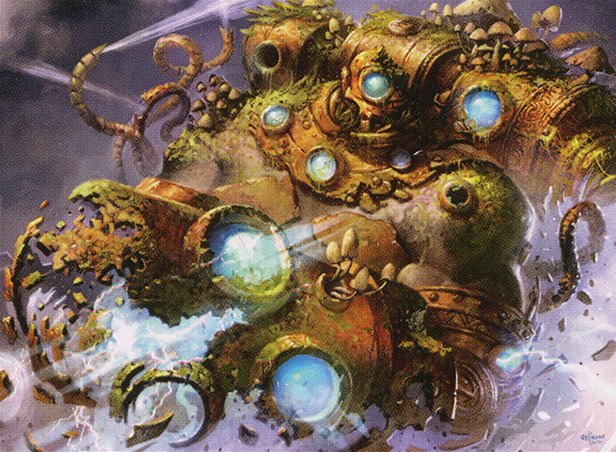 | Five-color Combo | Legacy | Painter | Charlotte Legacy League Season 2 Week 1 |
 | Izzet Upheaval | Modern | Izzet Upheaval | Modern Challenge 64 2024-03-24 |
 | Mono-Blue Tron | Modern | Mono-Blue Tron | Modern Preliminary 2023-12-11 (1) |
 | Azorius Tron | Modern | Mono-Blue Tron | CCG SuperQualifier 5K OPEN | Modern |
 | Tron | Modern | Tron | Modern Preliminary 2024-01-03 (1) |
 | Izzet Tron | Modern | Mono-Blue Tron | Modern Preliminary 2023-12-26 (1) |
 | Mono-Blue Upheaval | Modern | Mono-Blue Upheaval | Modern League 2023-11-28 |
Card Pros
Card Advantage: With the Mindslaver artifact, players gain impermanent yet potent control over their opponent’s next turn. This can lead to significant card advantage as they can manipulate the opponent’s actions, potentially causing them to waste resources or even use their own cards against them.
Resource Acceleration: Although Mindslaver itself doesn’t directly accelerate resources, gaining control of an opponent’s turn can allow you to utilize their resources instead—effectively providing you with an additional turn’s worth of mana and actions while depriving them of the same. This kind of tempo gain can be a game-changer in many MTG matchups.
Instant Speed: While the activation of Mindslaver is not at instant speed, it sets the stage for making full use of the opponent’s instant-speed spells and abilities. This opens up opportunities to disrupt their strategy at crucial moments, turning the tide of the game in your favor just as effectively as any fast response your own deck could provide.
Card Cons
Discard Requirement: While the Mindslaver card doesn’t directly ask for a card discard, it can indirectly cause a significant depletion of the player’s hand. Taking control of an opponent’s turn often results in forcing them to make disadvantageous plays, which can include discarding their valuable cards.
Specific Mana Cost: This artifact requires six generic and four Phyrexian mana to activate, which mandates having access to either sufficient life points to pay the cost or the right color mana – usually blue. This can be a heavy limitation for multicolored or colorless decks not prepared to meet such a steep cost.
Comparatively High Mana Cost: With a total cost that might reach ten mana including the activation, Mindslaver presents a significant investment. In a game where tempo matters, the cost of deploying and utilizing Mindslaver can be prohibitive, especially when compared to other control or combo pieces available in the meta.
Reasons to Include Mindslaver in Your Collection
Versatility: Mindslaver is a unique piece in artifact-oriented decks, offering a powerful effect applicable in various situations. Its ability to control an opponent’s turn can turn the tides in games, making it a versatile inclusion in numerous MTG strategies.
Combo Potential: This card pairs exceptionally well with recursion mechanics. By repeatedly gaining control over an opponent’s turns, you can create a soft-lock combo, disrupting your opponent’s game plan while you advance your own board state.
Meta-Relevance: Mindslaver’s relevance shifts with the competitive landscape, but it remains a formidable tool against control and combo decks. In a meta where a single turn can make a significant difference, seizing that opportunity can often lead directly to victory.
How to beat
Mindslaver, a formidable artifact in Magic: The Gathering, possesses the unique ability to control an opponent’s next turn, potentially swinging the game in your favor. To counter this powerful card, it is crucial to have strategies in place. Cards like Krosan Grip, which can destroy artifacts while preventing the activation of abilities in response, offer a straightforward solution.
Another effective method is to take advantage of instant-speed interaction. Holding onto cards like Negate or Disallow can interrupt a Mindslaver activation, effectively preserving your game plan. Additionally, playing mindfully with an awareness of open mana can deter an opponent from attempting to resolve a game-changing Mindslaver turn.
On the battlefield, fast-paced aggro decks can pressure a Mindslaver player before they assemble enough resources to use the card effectively. Countering Mindslaver is about timing, resource management, and maintaining a resilient board presence. By adopting these strategies, players can protect themselves from the Mindslaver’s dominating grasp, keeping their own strategy and decisions firmly in hand.
BurnMana Recommendations
Mastering the Mindslaver MTG card can be a game-defining moment, offering a high-stakes play that overturns typical game dynamics. It’s not just about the initial play, but building a rapport with the card’s unique mechanics. Knowing when to deploy Mindslaver and integrating it into your broader strategy is key. Our discussions don’t end here. We delve deeper into optimizing combos and dissect metagame shifts to empower your deck builds with Mindslaver. Ready to harness its full potential and outmaneuver your opponents with unparalleled control? Explore more with us and let Mindslaver become your secret weapon on the path to victory.
Where to buy
If you're looking to purchase Mindslaver MTG card by a specific set like Mirrodin and Scars of Mirrodin, there are several reliable options to consider. One of the primary sources is your local game store, where you can often find booster packs, individual cards, and preconstructed decks from current and some past sets. They often offer the added benefit of a community where you can trade with other players.
For a broader inventory, particularly of older sets, online marketplaces like TCGPlayer, Card Kingdom and Card Market offer extensive selections and allow you to search for cards from specific sets. Larger e-commerce platforms like eBay and Amazon also have listings from various sellers, which can be a good place to look for sealed product and rare finds.
Additionally, Magic’s official site often has a store locator and retailer lists for finding Wizards of the Coast licensed products. Remember to check for authenticity and the condition of the cards when purchasing, especially from individual sellers on larger marketplaces.
Below is a list of some store websites where you can buy the Mindslaver and other MTG cards:
 BUY NOW
BUY NOW BurnMana is an official partner of TCGPlayer
- eBay
- Card Kingdom
- Card Market
- Star City Games
- CoolStuffInc
- MTG Mint Card
- Hareruya
- Troll and Toad
- ABU Games
- Card Hoarder Magic Online
- MTGO Traders Magic Online
See MTG Products
Printings
The Mindslaver Magic the Gathering card was released in 5 different sets between 2003-10-02 and 2024-04-19. Illustrated by 3 different artists.
| # | Released | Name | Code | Symbol | Number | Frame | Layout | Border | Artist |
|---|---|---|---|---|---|---|---|---|---|
| 1 | 2003-10-02 | Mirrodin | MRD | 206 | 2003 | Normal | Black | Glen Angus | |
| 2 | 2010-10-01 | Scars of Mirrodin | SOM | 176 | 2003 | Normal | Black | Volkan Baǵa | |
| 3 | 2020-03-08 | Mystery Booster Retail Edition Foils | FMB1 | 109 | 2003 | Normal | Black | Glen Angus | |
| 4 | The List | PLST | MRD-206 | 2003 | Normal | Black | Glen Angus | ||
| 5 | 2024-04-19 | Breaking News | OTP | 63 | 2015 | Normal | Borderless | Gossip Goblin | |
| 6 | 2024-04-19 | Breaking News | OTP | 80 | 2015 | Normal | Borderless | Gossip Goblin |
Legalities
Magic the Gathering formats where Mindslaver has restrictions
| Format | Legality |
|---|---|
| Commander | Legal |
| Legacy | Legal |
| Modern | Legal |
| Oathbreaker | Legal |
| Vintage | Legal |
| Duel | Legal |
| Predh | Legal |
| Penny | Legal |
Rules and information
The reference guide for Magic: The Gathering Mindslaver card rulings provides official rulings, any errata issued, as well as a record of all the functional modifications that have occurred.
| Date | Text |
|---|---|
| 2004-10-04 | Only lets you make decisions that the player would actually make. If another effect allows another player to make decisions that would normally be made by that player, such as having another player decide how combat damage is dealt, then the other effect takes precedence. |
| 2004-12-01 | If you make another player cast Shahrazad, you don’t control that player in the subgame, but you continue to control them once the subgame is completed. |
| 2004-12-01 | You also make choices for your own permanents, spells, and abilities as usual. |
| 2004-12-01 | You can’t make any decisions that aren’t called for or allowed by the game rules, or by any cards, permanents, spells, abilities, and so on. |
| 2004-12-01 | You can’t make the other player concede. A player can choose to concede at any time. |
| 2004-12-01 | You choose which activated abilities the other player activates, and make all decisions as those abilities are activated and when they resolve. For example, you can have your opponent sacrifice their creatures to their Nantuko Husk or have your opponent’s Timberwatch Elf give your blocking creature +X/+X. |
| 2004-12-01 | You choose which creatures attack and how those attacking creatures assign their combat damage. |
| 2004-12-01 | You choose which spells the other player casts, and make all decisions as those spells are cast and when they resolve. For example, you choose the target for that player’s Shock, and what card that player gets with Diabolic Tutor. |
| 2004-12-01 | You control them for the entire turn, from the untap step to the cleanup step. |
| 2004-12-01 | You could gain control of yourself using Mindslaver, but gaining control of yourself doesn’t really do anything. |
| 2004-12-01 | You don’t control any of the other player’s permanents, spells, or abilities. |
| 2004-12-01 | You get to make every decision the other player would have made during that turn. You can’t make any illegal decisions or illegal choices — you can’t do anything that player couldn’t do. You can spend mana in the player’s mana pool only on that player’s spells and abilities. The mana in your mana pool can be spent only on your spells and abilities. |
| 2004-12-01 | You make all decisions for the other player’s triggered abilities, including what they target and any decisions made when they resolve. |
| 2016-07-13 | Controlling a player doesn’t allow you to look at that player’s sideboard. If an effect instructs that player to choose a card from outside the game, you can’t have that player choose any card. |
| 2016-07-13 | While controlling another player, you can see all cards in the game that player can see. This includes cards in that player’s hand, face-down cards that player controls, and any cards in that player’s library the player may look at. |
